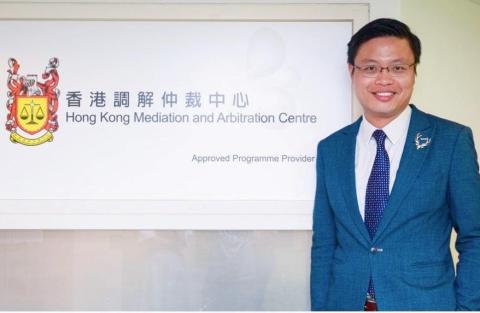

DIFFERENT REALMS OF KNOWLEDGE, BOUND TO ONE WORLD
“I’d say more than half of the knowledge necessary to do my work was acquired after graduation. That’s why it’s essential for HKUST graduatesto continue lifelong learning.” This is the advice Albert So has taken to heart himself; graduating from HKUST with a Computer Science and Engineering degree, he is now Chairman of the Hong Kong Mediation and Arbitration Center, and one of Hong Kong’s preeminent authority on financial regulations.
First though, how did a CompSci graduate end up working in financial regulations? Albert explains, “I took a lot of elective social studies courses at HKUST because I was interested in learning how communities and societies functioned. I earned so many credits in social sciences during summer school I could have graduated early.”
During his studies, one topic in particular resonated with Albert: law. “Law underpins how our world works, how it’s structured. There are laws for finance, laws for international trade, laws governing technology. Things work far better in many areas when there is a sound legal framework regulating it,” Albert says. No surprise then, that he completed a law degree soon after graduating from HKUST.
Working in financial regulations for over 15 years, Albert has experienced and overseen a tumultuous era in this field. He joined the Hong Kong Monetary Authority in 2008 during the nadir of the financial crisis. Albert recalls, “Before 2008, the Investigations team I was on received around 30 cases per year. In 2008, that figure ballooned to over thirty thousand.” If there was an instance of baptism by fire, that was it for Albert, and it proved to be invaluable experience for the young man.
When asked how Hong Kong’s financial regulatory system has improved since those dark days, Albert comments the city has made strides in two critical and related areas: Know Your Customer (KYC) and Anti-Money Laundering (AML). Understanding a potential client’s background is essential to preventing illegal financial transactions, but it also helps asset managers offer suitable investment products to an individual according to their risk tolerance, for example.
The next challenge for Hong Kong is establishing comprehensive regulations to oversee cryptocurrencies and virtual banking. “Cryptocurrencies aren’t illegal themselves, but there is so much gray zone in laws governing them that many banks refuse to open accounts for crypto brokers out of fear they may break the law if they serviced such clients,” Albert says.
In order to shepherd Hong Kong’s financial system into this new epoch, Albert has delved deeply into understanding new technologies that may yet transform Hong Kong. The latest in his long list of achievements: developing a Robo-lawyer with his alma mater. “There are a lot of repetitive and basic legal services that can be provided far more cheaply and quickly than the traditional methods, so I was delighted to collaborate with the CSE department (at HKUST) to develop a Robo-lawyer that can generate a legal contract with just a few questions from the user.” Albert So, truly an embodiment of lifelong learning, and a worthy example for HKUST students and graduates to follow.
Know more about Albert from:
HKUST News: Robo-lawyer: Your AI Conflict Resolution - May 21, 2019

